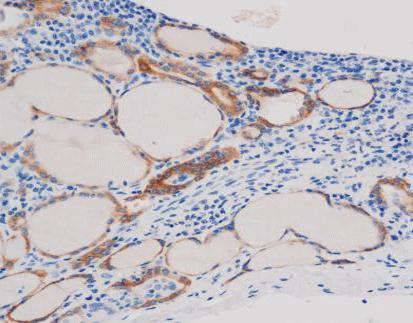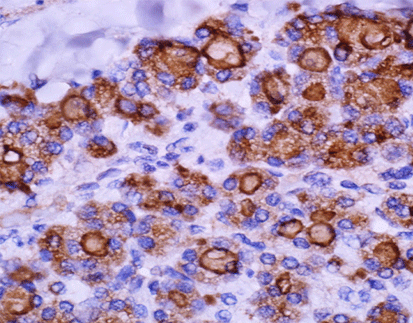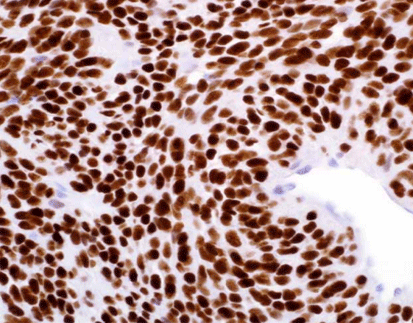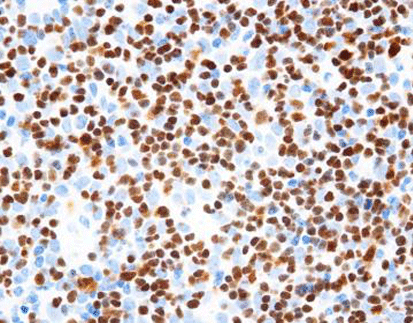 PRODUCT CATEGORY
PRODUCT CATEGORY
CONTACT US
TFE3
Xp11.2 translocation renal cell carcinoma is a newly discovered subtype in the classification of kidney cancer, which is more likely to occur in children and adolescents than adults. Morphologically, these tumors show papillary structures, clear cytoplasm, and often have psammoma bodies. TFE3 is the most specific marker for Xp11.2 translocation renal cell carcinoma. And the mechanism may be promote the overexpression of TFE3 due to the formation of fusion genes. Alveolar soft part sarcoma (ASPS) is a rare soft tissue sarcoma of uncertain differentiation type, usually occurring in the limbs of young patients. The feature is chromosome rearrangement on 17q25 and Xp11.2 producing ASPSCRI-TFE3 fusion gene and abnormal transcription. This abnormal chimeric transcription factor retains the N-terminus and DNA binding domain encoded by TFE3, and the ASPSCR1 coding part may provide fragments that regulate gene expression. This super-activated transcription factor may induce the expression of a large number of molecules, contributing to the diagnosis, evolution and transfer of ASPS.
Staining Tissue
- As Figure shows:
Renal cell carcinoma tissue stained with TFE3
Specification
|
CODE |
WORKING SOLUTION |
CONCENTRATED SOLUTION |
||||
|
CTR-0140 |
SPECIFICATION |
1ml |
3ml |
6ml |
0.1ml |
0.2ml |
More Info
Clone: MRQ-37
Source: Rabbit
Localization: Nucleus
Pretreatment: Thermal remediation
Applicable tissue: Paraffin section
Related Product












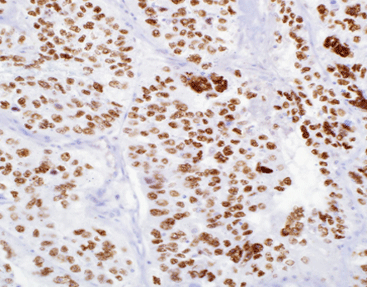

 Chat
Chat

 message
message

 Quote
Quote
